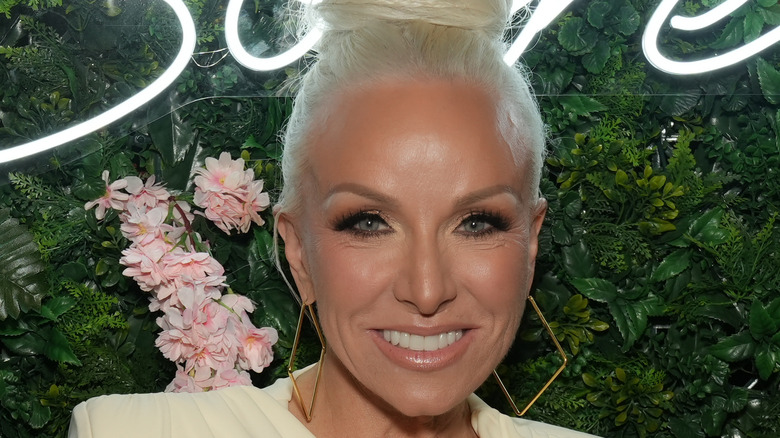Celebrities Are Owning Up To Their Cosmetic Tweaks, But Is That Good? The Answer Isn't So Simple
There's not a lot of mystery anymore about celebrity plastic surgery and the work that many have had done. Instead of denying cosmetic tweaks, many celebrities have come forward to openly discuss procedures like botox, fillers, nose jobs, and more. On the one hand, this can be refreshing. We're no longer left wondering how certain stars are achieving such seemingly impossible ideals. The jig is up! There's no hiding.
But while we all love honesty, there's a darker side to this world of celebrity confessions about cosmetic work. The candid, easy conversations about getting work done normalizes it to where it's almost expected. In fact, it almost seems like a right of passage for everyone. Not only that, it becomes a message to the rest of us that this is the appropriate response to our bodies as they age or if we perceive something that doesn't measure up to a societal standard of beauty. We've got to figure out how to navigate this growing shift towards these candid conversations about cosmetic work, while staying comfortable in our own bodies.
Honesty doesn't make it easier for the average fan
There's a lot of praise for celebrities who choose to open up about their cosmetic tweaks. On TikTok, user @louislevanti spoke about celebrities like Tyra Banks, Cardi B, and Britney Spears who have admitted to having work done. The comments were positive, and people overwhelmingly seemed to enjoy the honesty. "I appreciate the ones who are honest bc it can be very damaging to ppl who think it's natural when some celebs deny it," one person commented. "I love when celebrities tell this kinda stuff," another began, adding heart emojis. "[L]ike it gives 'I'm human and it's okay' vibes and I love it."
Another TikToker, @iheartradioau, spoke positively about Doja Cat's candidness regarding her procedures. People were all about it in the comments. "I'm HERE for transparency," one person commented. "[A]t least she's being honest," another wrote.
While honesty is great, the shift in the conversation has created more unrealistic expectations for everyday people. "We've always been fascinated with how celebrities look so incredible, and there's a part of all of us who wants to find out why and how they do it," plastic surgeon Dr. Anthony Youn told Vice. Just because we know something's augmented or fake doesn't mean our interest stops there. It just encourages people to look into changes for themselves. After all, if a celebrity is unsatisfied with something about their looks, the message is that we should feel the same as well.
The inaccessibility of it all
Just because celebrities are being honest doesn't make beauty standards more manageable for the average fan. Their candidness about the tweaks they've had done implies that our bodies are always projects to be worked on. "Real Housewives" stars like Jennifer Fessler and Margaret Josephs got candid about their weight loss, aided by taking peptides and medications. And while people can and should do what they feel is right for their bodies, the message it sends is that a body can only be celebrated in its thinness. Women can't feel at home in their bodies without medical intervention. And now, thanks to the transparency from these celebrities, we literally have specific to-do lists of things we can try.
It's also worth pointing out many of the cosmetic tweaks are financially unachievable for many. For example, Ozempic, a drug for those with type 2 diabetes that causes weight loss, costs anywhere from $170 to $342 per week. This drug has become a hot topic among many celebrities who use it to lose weight. The problem is that the average person can't afford those kinds of bills, so even if they wanted to use it, it would be difficult to access.
Halle Berry told Yahoo! Beauty in 2015 that she felt the pressure to reverse aging. Arguably, our cultural fascination with cosmetic tweaks is its own form of pressure for the rest of us, and hearing about the particular work only amplifies the specifics of what can and "should" be changed in us. Instead, we should be pushing back against this pressure.

